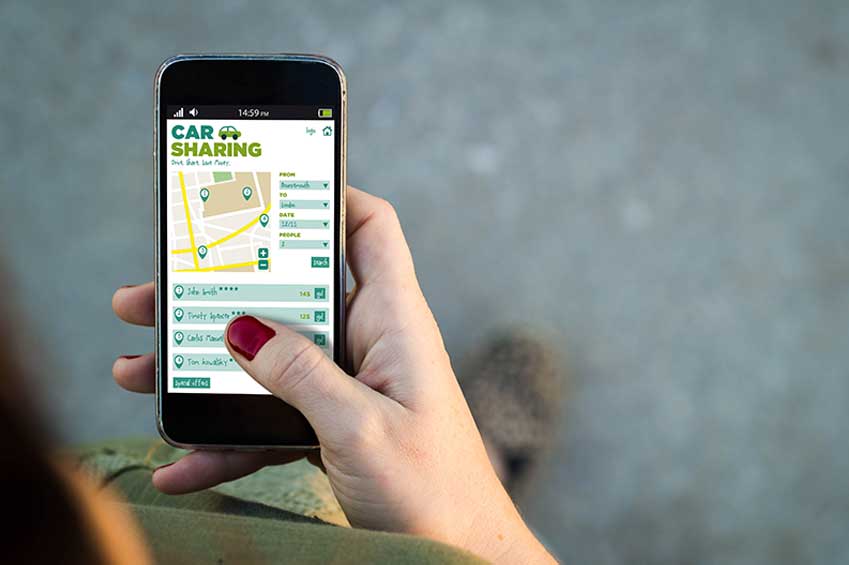Commercial vehicle drivers adhere to “Hours of Service” laws that dictate how many hours they can legally drive in a day. These laws were enacted to make sure that drivers aren’t fatigued when behind the wheel. They are important because driving while fatigued can make a driver more prone to error; some studies suggest that drowsy driving is comparable to drunk driving when it comes to impairing driver performance.
With the emergence of the ridesharing services Uber and Lyft, both of which operate in Houston, the accepted norms and standards that govern conventional transportation workers do not apply to a growing subset of “professional” drivers. Uber and Lyft drivers aren’t vetted or trained like their CMV (Commercial Motor Vehicle) driver counterparts that have a special type of driver’s license. They are also not subject to the same laws. As ridesharing apps increase in popularity and more people look to driving to supplement their income, a lack of standards could prove to be dangerous for everyone on our roads.
The Wild West of Ridesharing Oversight
Uber doesn’t place a limit on how many hours a driver can work. Making matters worse, there are periods when fares spike, giving drivers incentives to keep driving well past a point that they would otherwise take a break. USA Today reported a story about a driver who drove 20 hours straight because his hourly rate inexplicably jumped from $8 to $20 and he felt compelled to take advantage of it.
The USA Today’s story might be more common than people would like to believe. For drivers who rely exclusively on income from ridesharing services, a 16-hour shift during peak fares might be the only way to pay the bills. These grueling shifts force drivers to rely heavily on caffeine and push their bodies well beyond their limits.
Uber’s rival, Lyft, conversely, does put a limit on how many consecutive hours a worker can drive. After 14 hours, the app shuts down and a driver can’t begin working again until six hours of time off. However, even with that limit, Lyft drivers are allowed four more hours on the road per day than passenger-carrying commercial vehicle drivers. Federal law says that no passenger-carrying commercial vehicle driver can drive for more than 10 hours a day, but rideshare companies don’t have to abide by those same laws.
A Lure to Rideshare, Despite the Risks
People who use rideshare apps are drawn to the convenience and speed of the service. Drivers are drawn to the opportunity to make money on the side and set their own hours. But the inherent problems that accompany these types of services present serious risks for both passengers and drivers. No one wants to drive for 16 hours straight just to pay their bills, and no one wants to hail a ride in a vehicle being driven by someone who is completely exhausted from a 14-hour stint of driving.
Drowsy driving is a serious problem on our roads. There is a good reason that federal law limits the number of hours a professional driver can work in each day. After driving several hours straight, drivers can become distracted, lose focus, and be much more prone to error.
If you’ve been injured in a crash involving a fatigued driver, you shouldn’t have to pay the costs associated with your injury. At the accident and injury law office of Terry Bryant, we have years of experience getting our clients the compensation they deserve.
To schedule a free consultation with the accident and injury law office of Terry Bryant, contact us today by filling out our online contact form or giving us a call at 1 (800) 444-5000 or locally in the Houston area at (713) 973-8888.
Attorney Terry Bryant
 Terry Bryant is Board Certified in personal injury trial law, which means his extensive knowledge of the law has been recognized by the Texas Board of Legal Specialization, setting him apart from many other injury attorneys. The 22 years he spent as a Municipal Judge, Spring Valley Village, TX also provides him keen insight into the Texas court system. That experience also helps shape his perspective on personal injury cases and how they might resolve. This unique insight benefits his clients. [ Attorney Bio ]
Terry Bryant is Board Certified in personal injury trial law, which means his extensive knowledge of the law has been recognized by the Texas Board of Legal Specialization, setting him apart from many other injury attorneys. The 22 years he spent as a Municipal Judge, Spring Valley Village, TX also provides him keen insight into the Texas court system. That experience also helps shape his perspective on personal injury cases and how they might resolve. This unique insight benefits his clients. [ Attorney Bio ]


 Terry Bryant is Board Certified in personal injury trial law, which means his extensive knowledge of the law has been recognized by the Texas Board of Legal Specialization, setting him apart from many other injury attorneys. The 22 years he spent as a Municipal Judge, Spring Valley Village, TX also provides him keen insight into the Texas court system. That experience also helps shape his perspective on personal injury cases and how they might resolve. This unique insight benefits his clients. [
Terry Bryant is Board Certified in personal injury trial law, which means his extensive knowledge of the law has been recognized by the Texas Board of Legal Specialization, setting him apart from many other injury attorneys. The 22 years he spent as a Municipal Judge, Spring Valley Village, TX also provides him keen insight into the Texas court system. That experience also helps shape his perspective on personal injury cases and how they might resolve. This unique insight benefits his clients. [ 

